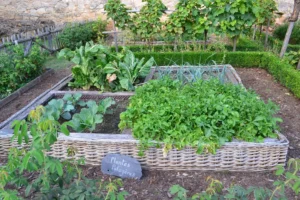
Can a spider poo? A mother turned to Facebook seeking guidance as she expressed her confusion over discovering a set of black droppings scattered throughout her home. Posting on a Mrs. Hinch fan page, she shared a series of images revealing peculiar black specks along her skirting board and wall.

“Anyone have any idea what this is?” She asked. “Just appeared this last week or so on the skirting board in my dining room, also bits on the wallpaper and the floor which gets mopped every day! It’s not bumpy, it looks like some sort of paint splatter but it isn’t.” She continued.

Followers came back with a common answer – Spider Poo

Fellow enthusiasts of Mrs. Hinch promptly came to the rescue, with users confidently asserting that the markings were indeed spider droppings. One wrote: “It happens a lot this time of year, spiders pooing everywhere, Dettox spray is good for it.” While another said: “It’s spider poo after they’ve eaten flies. I get it on my window sill.” Others said it could have been “fly poo” while one user was adamant, it was “spider poo for defs”.
What do the experts say?
According to various sources offering advice on pests, spiders typically do not leave solid droppings; instead, their excrement is thick and liquid in consistency, resembling dark ink stains. These markings often appear on walls and surfaces.
Spider feces are not solid; instead, they appear as dark stains or drips on walls and surfaces. The specific appearance of the droppings varies among spider species, making it challenging for the untrained eye to distinguish.
Typically, spider poop accumulates in a specific location below their web, often in corners with cobwebs on walls. Since spiders seek dark or undisturbed places for refuge, their droppings may unexpectedly appear in various locations. The size of spider droppings is approximately that of a pinhead, and they exhibit a monotone color, with variations in white, black, gray, or brown hues.
Is spider poo dangerous to handle?
While spider poop is not proven to transmit pathogens, it is advisable to treat it with caution and handle it as if it were potentially toxic. Studies indicate that pathogens ingested by spiders do not typically pass on through their droppings.
Nevertheless, it’s important to exercise caution and thoroughly wash hands with soap and water after handling spider feces. Cleaning fresh spider droppings is easier, while dried ones may require more effort to remove and may leave behind yellow stains.
It’s essential to note that cleaning up spider poop does not eliminate the spiders responsible for it. To prevent the reappearance of droppings, taking action against these creatures is necessary. Maintaining a highly tidy environment and removing every spider web you encounter is a good starting point. There are also products available to assist with infestations, and professional pest control services are well-equipped to handle such situations.
This Boy’s Bold Move with $13 Catapults His Family to a $2 Million Home
A young boy asked his mom for the last $13 she had saved for food so he could start a business. A few months later, he took her back to their tiny, old trailer and handed her the keys to their new $2 million home.
Annie Byrne, a mother from Atlanta, believed in teaching her son, Simon, the value of hard work and determination. She knew this would help him grow into a responsible person.
“Who cares if my son and I live in a rusty old trailer now? One day, he will take me to a palace and make me its queen!” Annie, a widow who worked as a janitor and struggled to get by, often dreamed of a better life.

One day, a mother’s prayers were answered in the most unbelievable way when her son handed her the keys to a $2 million house. But she didn’t know what sacrifices he made to make her dream come true.
“Mom, when will we live in a nice house?” 13-year-old Simon asked his mother. “It’s getting cold, and it’s cramped inside.”
Simon’s mom, Annie, didn’t know how to reply. She had very little savings, and her salary barely covered food and school costs for her son.

“Very soon… we’ll move very soon,” she told Simon, holding back tears. “Now close your eyes and go to sleep.”
Annie couldn’t sleep, though. She knew “soon” might never come. That night, she sat by Simon, heartbroken, thinking their struggles would never end.
The next morning, Simon’s friends asked him to play, but he didn’t go. He couldn’t be happy knowing how much his mom was struggling. While walking alone, Simon saw a boy earning money at a lemonade stand.
“Wow!” Simon thought. He wanted to start a small business, but he had almost no money. He left disappointed, but then an idea hit him. He ran home, excited.

“Mom, can I have some money?” he asked. Annie was hesitant.
“Son, I only have $13 left. That’s for food until I get paid next week,” she said.
But Simon was determined. “Mom, please trust me. Just give me the $13. I promise you won’t regret it.”
Reluctantly, Annie gave him the money, curious about what he’d do with it.
Later, Simon returned with several packets in his hands. Annie asked what they were, but he didn’t answer and grabbed a shovel. She watched in disbelief as he dug up the yard around their trailer, planting seeds from the packets.
“What are you doing?” she asked.

Simon smiled and said, “Mom, if we plant today, we’ll harvest tomorrow!”
At first, Annie didn’t understand. But over the next few weeks, Simon worked hard, watering and caring for the garden. Soon, the yard was filled with fresh herbs and plants.
Annie thought they’d use the produce for themselves, but Simon surprised her.
“Mom, we can’t eat this,” he said. “I’m selling it at a little stall I’m setting up. We’ll use the extra for ourselves.”
Simon’s fresh produce became popular. People loved his natural, chemical-free vegetables, and soon, everything he sold was gone quickly. As his business grew, Simon realized he needed more space to grow more crops. He expanded the garden and started growing fruits and flowers too.

As the money rolled in, Simon and Annie moved into a rented house. Annie even quit her janitor job to help Simon in the garden. Their stall grew, and soon the whole town knew about them.
But their success attracted the jealousy of a wealthy farmer named Alex, who couldn’t believe a young boy was doing so well. Curious, Alex visited Simon’s garden one day.
“How do you grow such healthy produce without chemicals?” Alex asked.
Simon replied, “People should eat food, not poison. We use natural methods to keep the plants safe.”
Impressed, Alex realized he had misjudged Simon. Instead of competing with him, Alex asked Simon to partner with him. Simon ran to ask his mother if he should accept the offer.

After thinking it over, Annie agreed. Simon balanced school and working on Alex’s farm while still tending to his little garden.
Their business took off. They started selling produce not just locally but even to neighboring states. Two years later, Simon saved enough money to build a new house on the same spot their trailer once stood. With Alex’s help, the house was finally built.
When Simon handed his mother the keys to their new house, Annie cried tears of joy. Her dream had come true.
“Simon, you gave up your childhood to make me happy,” she said, hugging him. “I love you.”
Simon smiled. “I can still play and have fun, but I couldn’t watch you struggle. I’ll always be your little boy!”

Though Simon was now successful, he never forgot the small garden that started it all. He kept growing the crops but never sold them again.
“We should enjoy the fruits of our hard work, Mom,” he said, laughing. “We’re going to eat this ourselves!”
Simon’s business continued to grow, and there were rumors



Leave a Reply